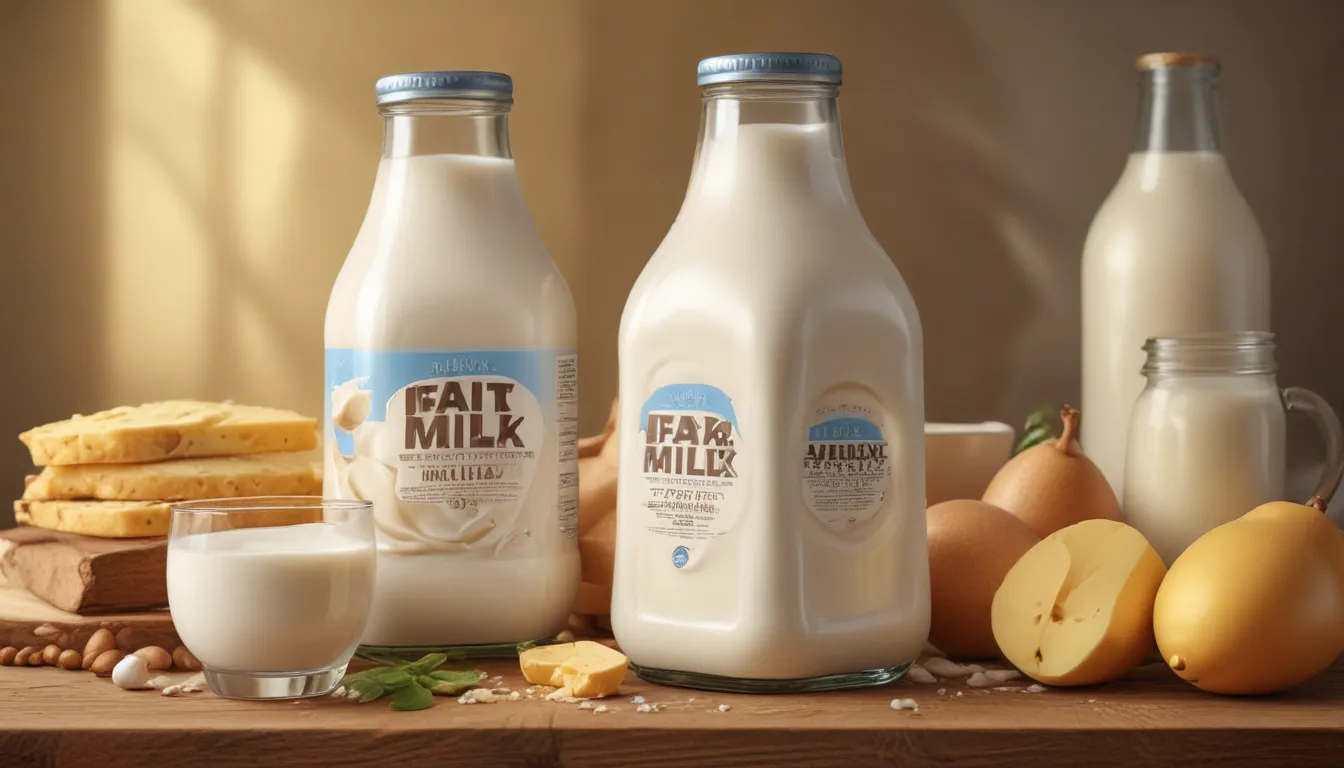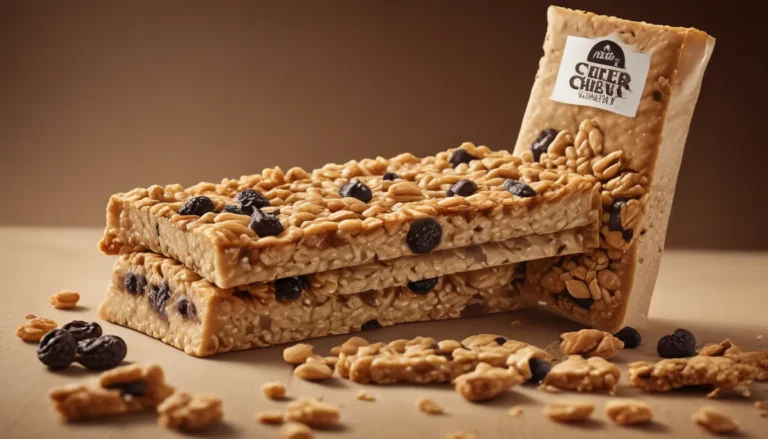The pictures in our articles might not always show exactly what the text is talking about. We use these images to make the article more interesting and eye-catching. They are there to add to the text, but not to replace it or show every detail.
In today's health-conscious world, the demand for fat-free milk is on the rise. This dairy product, also known as skim milk, offers a multitude of benefits for those looking to maintain a healthy lifestyle. From supporting bone health to aiding in weight management, fat-free milk is a versatile and nutrient-rich option to consider adding to your daily routine.
Key Takeaways:
- Low-Calorie, High-Protein: Fat-free milk is a low-calorie, high-protein beverage that supports bone health, muscle development, and overall well-being.
- Rich in Essential Nutrients: With crucial nutrients like calcium, vitamin D, and amino acids, fat-free milk promotes strong bones, teeth, and cardiovascular health.
- Versatile and Hydrating: Fat-free milk is easy to incorporate into your diet and serves as a hydrating option for staying refreshed throughout the day.
Exploring Fat-Free Milk Nutrition Facts
Fat-Free Milk for Weight Management
One of the key advantages of fat-free milk is its low-calorie content. With only about 90 calories per cup, it's a great choice for those looking to maintain or shed a few pounds while still receiving essential nutrients.
Protein Power in Fat-Free Milk
Protein is essential for building and repairing tissues, and fat-free milk serves as an excellent source of this vital nutrient. With around 8 grams of high-quality protein per cup, it supports muscle development and overall health.
Calcium-Rich Goodness
Maintaining strong bones and teeth is crucial, and fat-free milk is a rich source of calcium. A single cup provides approximately 300 milligrams of calcium, contributing to the recommended daily intake for most individuals.
Vitamin D Fortification
Vitamin D is essential for calcium absorption, and fat-free milk is commonly fortified with this important nutrient. Regular consumption can help meet your vitamin D needs, supporting bone health and immunity.
A Bounty of Vitamins and Minerals
In addition to calcium and vitamin D, fat-free milk offers a variety of vitamins and minerals necessary for optimal health. These include potassium, phosphorus, vitamin B12, and riboflavin.
Essential Amino Acids
Fat-free milk contains all nine essential amino acids that our bodies cannot produce. These amino acids are the building blocks of proteins, and consuming fat-free milk ensures an adequate intake of these vital nutrients.
Heart-Healthy Option with Low Saturated Fat
Naturally low in saturated fat, fat-free milk is a heart-healthy choice. A diet low in saturated fat can reduce the risk of heart disease and help maintain healthy cholesterol levels.
Hydration Benefits
Apart from providing essential nutrients, fat-free milk helps hydrate the body. While it may not be as hydrating as plain water, incorporating fat-free milk into your daily fluid intake can be beneficial.
Post-Exercise Recovery Support
The balanced combination of carbohydrates and protein in fat-free milk can aid in post-exercise recovery. Consuming it after a workout provides muscles with the necessary nutrients to repair and replenish.
Stronger Teeth with Fat-Free Milk
The calcium and phosphorus content in fat-free milk promote strong teeth and can help prevent cavities. Including fat-free milk in your dental care routine contributes to maintaining good oral health.
Incorporating Fat-Free Milk Into Your Diet
Versatile and Easy to Enjoy
Whether you prefer a glass of fat-free milk on its own, adding it to cereal, using it in smoothies, or incorporating it into various recipes, fat-free milk is a versatile ingredient that can easily be included in a balanced diet.
Conclusion
Fat-free milk is a nutritional powerhouse with numerous health benefits. From promoting strong bones to aiding in weight management, this dairy product is a valuable addition to a healthy lifestyle. Remember to opt for organic or hormone-free varieties for the best quality milk.
So, the next time you're at the grocery store, don't forget to grab a carton of fat-free milk and enjoy the benefits of this nutritious and delicious beverage.
FAQs
- Is fat-free milk really fat-free?
-
No, fat-free milk contains less than 0.5 grams of fat per serving, making it significantly lower in fat than whole or reduced-fat milk.
-
Is fat-free milk suitable for individuals with lactose intolerance?
-
Fat-free milk still contains lactose, so it may not be suitable for individuals with lactose intolerance. Lactose-free versions are available for those with this condition.
-
Can fat-free milk help with weight loss?
-
Yes, fat-free milk can be a beneficial addition to a weight loss diet due to its low calorie and high protein content.
-
Can fat-free milk be used in cooking and baking?
-
Absolutely! Fat-free milk can be used as a substitute for whole or reduced-fat milk in most recipes, providing a creamy texture and contributing to the overall taste.
-
Does fat-free milk have the same nutritional benefits as whole milk?
- While fat-free milk lacks the fat content of whole milk, it still provides essential nutrients like calcium, protein, and vitamin D.
Explore the World of Fat-Free Milk Nutrition
Our commitment to delivering trustworthy and engaging content ensures that each fact shared is accurate and credible. Trust in our dedication to quality and authenticity as you learn about the benefits of fat-free milk and discover new ways to incorporate this nutritious dairy product into your daily routine.






